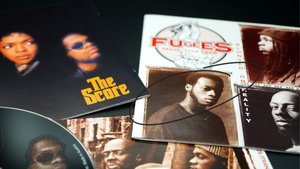Pras Michel - one third of The Fugees - has been jailed for fourteen years after being found guilty two years ago of unlawfully lobbying two US Presidents on behalf of fugitive Malaysian billionaire Jho Low.
The musician was convicted for campaign finance violations, acting as an unregistered foreign agent, witness tampering and lying to banks, all in relation to the millions in cash he took from Low, who was seeking to influence the governments of both Barack Obama and Donald Trump.
Michel’s legal team argued that their client shouldn’t face any more than three years in jail for his crimes, but US prosecutors told the court that sentencing guidelines actually recommended a life sentence, because Michel had “betrayed his country for money” and “lied unapologetically and unrelentingly to carry out his schemes”.
In a written statement to the court, the US Department Of Justice argued that Michel’s sentence “should reflect the breadth and depth of his crimes, his indifference to the risks to his country and the magnitude of his greed”.
Following Michel’s sentencing, attorney Peter Zeidenberg said the fourteen year jail term was “completely disproportionate to the offence”, and that the harsh sentence “illustrates just how easily the guidelines can be manipulated to produce absurd results, and how poorly equipped they are, at least on this occasion, to determine a fair and just sentence”.
This whole sorry saga relates to what is known as the 1MDB scandal in Malaysia. Back in 2015, Malaysia’s then President Najib Razak was accused of involvement in a scam to siphon off $3.5 billion from a state-owned investment fund called 1Malaysia Development Berhad - or 1MDB.
It was alleged that the scam was orchestrated by Low - who has various links with the entertainment industry, including involvement in the 2012 Sony-led acquisition of EMI Music Publishing.
Facing criminal charges in both Malaysia and the US, Low was seemingly keen for the American government to be lobbied as officials there continued with their investigations.
And that’s where Michel's involvement began. He was basically paid money to use his connections within the US political community to Low’s advantage.
During his original trial, Michel argued that, while he had received payments from Low, he saw it as “free money”. He then blamed various advisors who he said had given him bad advice when it came to accepting and using that money.
After being found guilty in 2023, Michel sought to get a retrial, claiming that there had been an assortment of issues with the original trial, including the fact his defence lawyer used generative AI to help write his closing remarks.
However, last summer a judge ruled that the errors that occurred during the original court case did not constitute a serious miscarriage of justice.
Zeidenberg has confirmed that Michel will now appeal both his conviction and yesterday’s sentencing decision.

